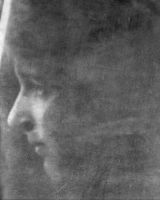María Zambrano
Biography:
Spanish philosopher, essayist and poet born in Vélez, Malaga in 1904. She was the daughter of the philosopher and educationalist Blas José Zambrano and she undertook her first studies in Segovia. Later she moved to Madrid where she studied philosophy and arts, establishing intellectual contact with Ortega y Gasset, García Morente, Besteiro and Zubiri, among other intellectuals.
She experienced the political events of those years first-hand, and this experience led to her first book “Horizonte del liberalismo” (Horizon of Liberalism) in 1930. She established friendships with important poets of the time, such as Luis Cernuda, Jorge Guillén, Emilio Prados and Miguel Hernández.
In January 1939, when the Civil War came to an end, she left Spain and went to Paris, where she met A. Camus and R. Char. Later she lived in Mexico, Havana and Rome, evolving with great literary intensity and writing some of her most emblematic works: “Los sueños y el tiempo” (Dreams and time), “Persona y democracia” (The person and democracy), “El hombre y lo divino” (Man and the divine), and “Pensamiento y poesía” (Thought and poetry). After forty five years in exile she finally returned to Spain in 1984. Four years later, her work was recognised with the Prince of Asturias and the Cervantes awards. She died in 1991 in Madrid, where she had set up residence after her long period of exile.
As a philosopher, María Zambrano combined the western philosophical tradition: existentialist, phenomenological and vitalistic, that of Spinoza and that of the Greeks, inspired by Plato’s thinking. The core of her thought “La razón poética” (Poetic reason) is a way of learning how to look with soul and calm at an invisible reality, that remains hidden, but where the answers that give meaning to life are found.
“Poetic thought” seeks to overcome the abyss between philosophy and poetry. This was the constant main concern of the author, in whose discourse philosophical reflection and the mystical-poetic nature of her successes appear to become confused.
She was always aware that being a woman philosopher at the beginning of the century meant entering a masculine sanctuary. It was in this sphere that she coined the phrase that summarises her feminist thought: “It is time for women to enter not only the public, but also the empire of dignity”. With this phrase she wanted to make it understood that women’s entry into the public sphere must be preceded by their own authorship.
She was a modern woman who broke with traditional female customs and who was socially committed to fighting in the Second Spanish Republic for women’s right to vote. Her life was an ode to progress and her writings were an aid to the human spirit as they were free of utilitarian meaning.
For María Zambrano, “we only live when we transmit something, so that others live differently when they have read it” and “people write because there are some things that are so true that they cannot be uttered”, but thought and written.
Sources of information:
- Zambrano, María, Confesiones y Guías. Edición e introducción y notas de Pedro Chacón. Eutelequia 2011.
- http://cvc.cervantes.es/actcult/zambrano/
- http://www.fundacionmariazambrano.org/ver.aspx?p=mariazambrano/biografia_3&m=mar
- http://www.biografiasyvidas.com/biografia/z/zambrano.htm
- http://www.rtve.es/television/20120307/razon-poetica-maria-zambrano/505404.shtml
Photo:
- Public Domain (copyright expired). Wikimedia Commons. http://commons.wikimedia.org/wiki/File:Mar%C3%ADa_Zambrano_ca._1918.JPG.




